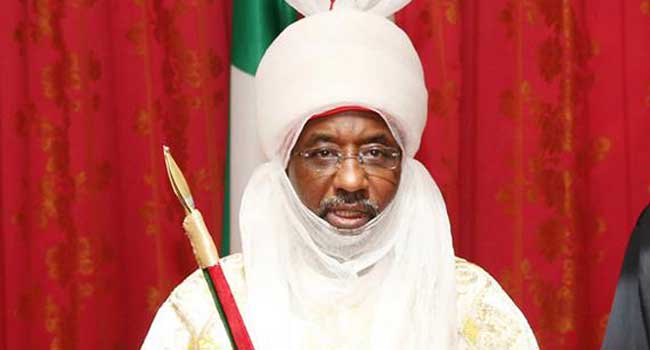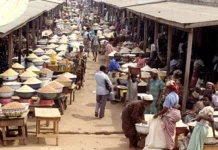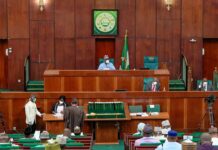The dethronement of Muhammadu Sanusi II as the 14th Emir of Kano would be inked in history as a significant moment in Nigeria’s traditional leadership.
This story dates back to March 2020.

The Kano State Executive Council, led by former Governor Abdullahi Ganduje removed Sanusi from office due to allegations of insubordination and a lack of respect for Kano State’s laws and traditions.
However, Sanusi’s ousting is not the first in the history of Nigeria.
Some high-profile monarchs have been deposed for various reasons.
Interestingly, Sanusi II’s grandfather, Muhammadu Sanusi I, was also dethroned in 1963 under similar circumstances.
This repeated history echoes the complex relationship between traditional authority and political power in Nigeria.
One may begin to wonder why this relationship is tagged ‘complex’.
You see, traditional rulers often play significant roles in the social and political spheres
However, these rulers are also subject to the dynamics of political authority and governance.
In this article, we will explore 5 Northern monarchs that have been deposed in Nigeria.
Check out the list below:
Muhammadu Sanusi I
Sanusi I was the 11th emir of Kano
His reign came after Abdullahi Bayero passed away on December 23, 1953.
Emir Sanusi was a senior councilor in the emirate council.
The late emir was said to have established a good relationship with the emerging Western-educated elite.
As a matter of fact, he helped them integrate into the native authority’s services.
His reign as emir birthed major changes in the state’s elite circles, however, it was not without controversies.
Disagreements arose when some senior NPC members in Kaduna picked interest in his influence.
This led to the formation of a commission to investigate the finances of the Kano native authority during Sanusi’s tenure.
Chaired by D. J. M. Muffet, the commission heard testimonies from authority members and ultimately recommended that the emir resign.
Following this recommendation, the regional government asked for Sanusi I’s resignation, which he promptly submitted to Kashim Ibrahim, the governor of the northern region, on March 28, 1963.
Umaru Tukur
The Emir of Muri faced a similar fate as other traditional rulers in the North when he was deposed due to perceived defiance towards the state governor.
Umaru Tukur assumed the position of 11th emir of Muri in 1966. However, after two decades of his reign, tensions arose between him and Yohana Madaki, the governor of Gongola state at the time.
Their ongoing conflicts ultimately led to Tukur’s removal from his position. On August 12, 1986, Governor Madaki issued an official decree stripping Tukur of his title as emir and chairman of the Muri emirate council. Madaki levelled allegations of misconduct within the palace against the deposed emir.
Subsequently, in September 1986, Madaki issued another order banishing Tukur to Mubi in what is now part of Adamawa State.
Following the division of Gongola State in 1991, the territories were split into Adamawa and Taraba States.
Ibrahim Dasuki
On April 20, 1996, Ibrahim Dasuki, after an eight-year reign, was removed from his position as the sultan of Sokoto.
He was said to have been dethroned on the orders of Sani Abacha.
Dasuki was called to Yakubu Muazu’s office, the military administrator of Sokoto at the time, and was informed of his dethronement.
He was then taken to Yola and later to Jalingo in Taraba state, where he was put into exile.
Muazu mentioned that Dasuki’s removal was due to actions that allegedly caused tension among the people and within the royal family, as well as a perceived disregard for government directives.
Mustapha Jokolo
In June 2005, Kebbi State was also struck with the wave of dethronement.
Mustapha Jokolo was the 19th emir of Gwandu.
However, the state government removed Jokolo from his position as the 19th emir of Gwandu, a town and emirate in Kebbi State.
This was due to allegations that he had made statements considered reckless and potentially harmful to national security.
There were also reports of strained relationships between Jokolo and other traditional rulers in the state
Furthermore, there were claims that he had neglected his duties and moved to Kaduna with his family.
Mohammed Ambursa, the then commissioner of information in Kebbi, announced that Adamu Aliero, the governor of the state, used his authority under the chiefs (appointment and deposition) law to depose the emir.
Also Read: Sanusi Officially Becomes 16th Emir Of Kano
Shortly after Jokolo was dethroned, a new emir was appointed by the state.
However, almost nine years later, in 2014, a Kebbi state high court ordered Jokolo reinstated, overturning his previous removal.
Muhammed Sanusi II
Sanusi II was deposed for showing “insubordination” to the authorities in the northern state of Kano.
The ex-central bank boss, has had frosty relations with Kano Governor Abdullahi Ganduje since 2017.
Since the emir and governor fell out, Mr Sanusi has not attended state functions and official meetings.
According to the government, such acts amount to “total insubordination”.
The government also frowned bitterly at the emir’s refusal to appear before a panel investigating allegations of corruption against him.
However, the present Kano State Governor, Abba Yusuf, officially reinstated HRH Muhammadu Sanusi II as the Emir of Kano State, on May 24, 2024.






